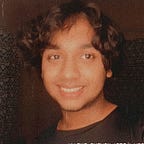Colloquial of Colonialism
“মাথার ঘাম পায়ে ফেলে সাহেব সাজি, তবু ডাকে বেবু”
- গগনেন্দ্রনাথ ঠাকুর, 1926
“By the sweat of my brow I tried to be a Shaheb but still they called me Babu”
- Gaganendranath Tagore, 1926
Caption from a caricature
Art as the epitome of human existence.
Art stays relevant long after the artists are long dead and the art itself is shattered to pieces. What appears to be an artifact of time happens to be timeless.
Gaganendranath Tagore was a painter and a cartoonist. Born in Jorasanko into a family whose creativity would come to define Bengali as a culture. Starting off with the revival of the Bengal School art movement, he moved onto satirical caricatures in his later life, exposing the hypocrisy of the society he lived in.
For context, in British India and long after that era, the British man was called Shaheb, and a Bengali man would have been called a Babu. A colloquial of colonialism.
73 years after they left, the aftershocks of two centuries of British oppression have not left the conscience of the Indian subcontinent.
Bengal as a region has been deprived of fundamental rights and facilities for so long that it didn’t have a chance to shine. A lack of knowledge, professionalism and taste led it to be what it is today.
I speak the white man’s tongue better than I do of my own mother’s. I think and I write in a language that defies the colour of my skin. Because you see, this is my identity. Stuck between two worlds, not quite fitting into either.
Everything I’m exposed to is a part of the western world. And I have found myself desperately trying to be a part of it. And it’s taken me years but I have come to terms with who, or rather, what I am. There are moments where I find myself trying to change my accent. To speak in a way that does not roll off my tongue. For what? To fit in.
Wearing the white man’s clothes, like the man in his caricature; I too have tried to dress off as a Shaheb, only to be called a Babu.
What I believe, is that this painting reflects the moral and social conscience of the subcontinent at the time, and that it still rings true for the vast majority of Desi youth. The world today is the way it is as a result of actions humanity has taken as a collective, years before, and for years to come. It is simply a result of the amalgamation of all the decisions made.
We are products of colonialism. You and me both.
Uzayer Masud
Uttara, Dhaka
